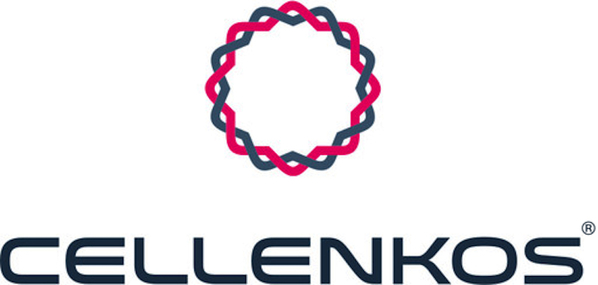 |
HOUSTON, May 3, 2023 /PRNewswire/ -- Cellenkos® Inc., a clinical stage biotechnology company focused on developing allogeneic, off-the-shelf, T regulatory cell therapies for treatment of rare inflammatory diseases and autoimmune disorders, announced today that it has dosed the first patient in a Phase 1/1b study evaluating CK0803 for treatment of amyotrophic lateral sclerosis (ALS) (under National Clinical Trial registry NCT05695521). CK0803 is a neurotrophic, allogeneic, umbilical cord blood-derived T regulatory (Treg) cell therapy that preferentially homes towards central nervous system, developed by using Cellenkos' proprietary CRANETM technology, to generate disease-specific products. The dosing of this first patient marks the beginning of a Phase 1 Safety Run-in Study of 6 patients, to be followed by a Phase 1b Randomized, Double Blind, Placebo Control Trial of CK0803 in an additional 60 patients with ALS. The treatment will include four weekly infusions followed by five monthly infusions.
Regulatory T Cells for Amyotrophic Lateral Sclerosis (REGALS) is a multicenter study with a lead site at Columbia University, led by principal investigator Neil Shneider, M.D., PhD., Associate Professor of Neurology and director of Columbia's Eleanor and Lou Gehrig ALS Center. The primary objective of the Phase 1 study is to establish safety and tolerability of multiple doses of CK0803 in ALS patients. In addition, the Phase 1b study will provide preliminary efficacy data of CK0803 in ALS using the primary endpoint of combined assessment of function and survival (CAFS) that ranks patients' clinical outcomes based on survival time and change in the ALS Functional Rating Scale-Revised (ALSFRS-R) score, and secondary endpoint of longitudinal measurement of neurofilament light chain levels in serum and cerebrospinal fluid (CSF).
"The dosing of the first patient marks an exciting milestone for our company. The initiation of this study of CK0803 is an important achievement that brings us closer to delivering a potential new treatment which may have a life-changing impact for ALS," said Tara Sadeghi, Chief Operating Officer of Cellenkos Inc. "ALS is a devastating disease with no cure, and we believe that CK0803 has the potential to provide a much-needed treatment option for patients. We are enthusiastic to move forward with this trial and to further explore the potential of CK0803 in ALS and other neurodegenerative diseases."
"We are excited to participate in this important study of this novel allogeneic Treg cell product in patients with ALS," said Dr. Shneider. "Promising data from six ALS patients previously treated with allogeneic cord blood Treg cells through an expanded access program at our Center supports the clinical development of CK0803, and we are grateful to Cellenkos for their commitment to applying their technology to ALS".
About Amyotrophic Lateral Sclerosis (ALS)
According to the National Institute of Neurological Disorders and Stroke, amyotrophic lateral sclerosis (ALS) is a group of rare neurological diseases that mainly involve the nerve cells (neurons) responsible for controlling voluntary muscle movement. In ALS, both the upper motor neurons and the lower motor neurons degenerate or die and stop sending messages to the muscles. Unable to function, the muscles gradually weaken and waste away (atrophy). Eventually, the brain loses its ability to initiate and control voluntary movements. The disease is progressive, meaning the symptoms get worse over time. The majority of ALS cases (90 percent or more) are considered sporadic. This means the disease seems to occur at random with no clearly associated risk factors and no family history of the disease. In a small (approximately 10%) of cases, ALS is caused by a mutation in a known ALS-associated gene.
Most people with ALS eventually die from respiratory failure, usually within 3 to 5 years from when the symptoms first appear. However, about 10 percent of people with ALS survive for 10 or more years. Currently, there is no cure for ALS and no effective treatment to halt or reverse the progression of the disease.
About CK0803
CK0803 is a novel allogenic cell therapy product consisting of T regulatory cells, with a high cell surface expression of CD11a, that leverage CXCR3/CXCL10 axis. CK0803 is derived from clinical-grade umbilical cord blood units and manufactured using Cellenkos' proprietary CRANE™ process. There is no requirement for HLA or ABO matching of CK0803 to the recipient. Multiple doses of CK0803 can be manufactured from a single umbilical cord blood unit, where the final cryopreserved product is readily available for use, at the point of care, which makes it an ideal therapy that can be infused intravenously, in the outpatient setting.
About Cellenkos®, Inc.
Cellenkos is a clinical-stage biotechnology company located in Houston, Texas, USA, dedicated to the development and commercialization of the allogeneic, "off-the-shelf" cell-based products for the treatment of rare inflammatory diseases and autoimmune disorders. Cellenkos' T regulatory cells (Tregs) are derived from umbilical cord blood and as such are naïve, bonafide suppressor cells that do not require HLA or ABO matching and resolve inflammation through multiple direct and indirect mechanisms. Cellenkos' proprietary CRANE™ process allows for tailoring of Tregs to become disease specific. Cellenkos' current clinical portfolio includes CK0801 (bone marrow failure); CK0802 (COVID ARDS); CK0803 (ALS) and CK0804 (myelofibrosis). For more information, please visit www.cellenkosinc.com.
Contact:
Stacy Minor
bd@cellenkosinc.com.